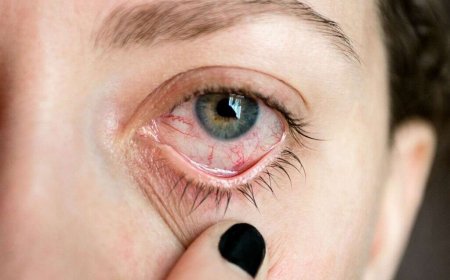Phobias

Introduction:
Fear is a natural emotion that protects us from danger. However, some fears can become overwhelming and turn into phobias, causing distress and anxiety. In India, just like anywhere else in the world, people may experience different types of phobias that can be effectively treated with understanding and support. Let's explore what phobias are, their types, causes, and how they can be managed.
What are Phobias?
Phobias are extreme and irrational fears of specific objects, situations, or creatures. They go beyond regular fears and can lead to panic attacks or avoidance behaviors. In India, just like elsewhere, many people may experience phobias, but with proper support, they can learn to manage and overcome them.
Signs and Symptoms:
- Feeling extreme fear or anxiety when encountering the object or situation.
- Rapid heartbeat, sweating, trembling, or feeling dizzy during exposure to the phobic trigger.
- Trying to avoid situations where the phobia might be encountered.
- Constantly thinking about the phobia and its consequences.
- Distress that interferes with daily life.
How are Phobias Classified?
Phobias are categorized into three main types:
-
Specific Phobias: These are fears of particular things or situations, such as spiders, heights, flying, or enclosed spaces.
-
Social Phobias: These involve a fear of social situations, like public speaking or meeting new people.
-
Agoraphobia: This is the fear of being in places or situations where escape might be difficult, like crowded places or using public transportation.
Causes and Triggers:
Phobias can develop due to a combination of genetic, environmental, and psychological factors. For example, if a close family member has a specific phobia, a person may be more likely to develop a similar fear.
Risk Factors:
-
Traumatic experiences: If someone had a scary encounter related to a specific object or situation, they might develop a phobia.
-
Childhood experiences: Some phobias might stem from childhood experiences or learned behavior.
-
Genetics: If phobias run in the family, a person might be more susceptible to developing one.
Types of Phobias:
-
Example of Specific Phobia: Arachnophobia (fear of spiders)
- This phobia can make someone feel extremely scared and anxious when they see a spider or even think about one.
-
Example of Social Phobia: Glossophobia (fear of public speaking)
- People with glossophobia may experience extreme anxiety and avoid speaking in front of a group.
-
Example of Agoraphobia: Claustrophobia (fear of enclosed spaces)
- Someone with claustrophobia may feel panicky and avoid using elevators or entering small rooms.
Diagnostic Tests and Treatments:
If someone is struggling with a phobia, they can seek help from a mental health professional. There are no specific diagnostic tests for phobias, but the healthcare provider will conduct an interview to understand the symptoms and their impact on daily life.
-
Cognitive-Behavioral Therapy (CBT):
- CBT helps a person understand and challenge their fears, replacing them with healthier thoughts and behaviors.
-
Exposure Therapy:
- In exposure therapy, a person gradually faces their fear in a controlled and safe environment, reducing anxiety over time.
-
Medication:
- In some cases, doctors may prescribe medication to manage anxiety or panic attacks associated with phobias.
Complications of Phobias:
If left untreated, phobias can lead to severe anxiety, depression, and social isolation. Seeking help early can prevent these complications.
Prevention Techniques:
While not all phobias can be prevented, some strategies can help:
- Learning relaxation techniques to cope with anxiety.
- Avoiding reinforcing fearful thoughts.
- Seeking professional help early on if fears become overwhelming.
Phobias are common but treatable conditions that can affect anyone, including people in India. By seeking support, understanding their fears, and using effective treatments, individuals can overcome their phobias and lead fulfilling lives. Remember, there is always help available, and it's okay to ask for it!
What's Your Reaction?
 Like
0
Like
0
 Dislike
0
Dislike
0
 Love
0
Love
0
 Funny
0
Funny
0
 Angry
0
Angry
0
 Sad
0
Sad
0
 Wow
0
Wow
0








































































